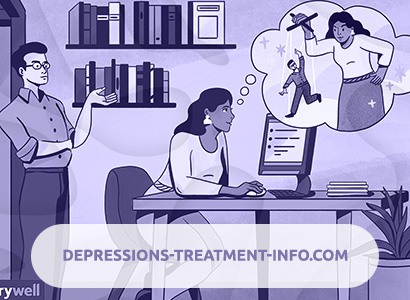What is Organic Delusional (Schizophrenia-like) Disorder?
Approximately 5% of patients with epilepsy may have psychosis if the underlying disease lasts up to 6 years. The question of periodic organic delusional psychosis is controversial, although all such cases are verified by objective research.
Causes of Organic Crazy (Schizophrenia-like) Disorders
The most common etiology is temporal epilepsy, as well as focal disorders of the temporal and parietal regions as a result of transferred encephalitis. This group includes epileptic psychosis without impairment of consciousness, or “schizoepilepsy.” With the defeat of the frontal and temporal divisions, hallucinatory-delusional attacks are possible, which are accompanied by episodes of unmotivated actions and loss of control over impulses of aggressiveness and other forms of instinctive behavior. It is not clear what caused the specificity of such psychosis – bilateral hereditary burden (epilepsy and schizophrenia) or damage to specific brain structures. Schizophrenia-like patterns of psychosis are also found in endocrine pathology (diffuse toxic goiter, after thyroidectomy).
Symptoms of Organic Crazy (Schizophrenia-like) Disorders
Chronic and recurrent organic delusional disorders are possible. They are united by the fact that in both cases negative organic personality changes are typologically similar to epileptic ones, that is, including bradifrenia, torpid, thorough thinking. Productive symptoms include hallucinatory-delusional pictures with the presence of visual, often religious hallucinations. Expansive paranoid states are characterized by ecstatic affect, while depressive paranoid states are dysphoric. At the height of psychosis, fragments of disturbances of consciousness are possible. Paranoiac psychosis proceeds according to the type of religious delirium, paraphrenia – with ecstasy, excitement and missionary utterances. Often, paranoid utterances are built on the basis of epilepsy-specific perceptual disorders of the type of interpretive delusion. It has been noticed that the onset of convulsive seizures can interrupt delirium, and their therapy resumes the clinical picture. There are clinical pictures of psychosis that contain symptoms of the first grade of schizophrenia. In endocrine pathology, psychosis is reminiscent of schizoaffective disorder, that is, with them, affective disorders coincide with schizophrenia-like disorders, but they last longer.
Diagnosing Organic Crazy (Schizophrenia-like) Disorders
Based on the identification of the main pathology (epilepsy or organic background), as well as specific emotional (dysphoria, ecstasy) color of paranoid experiences, the inclusion of visual hallucinations in the structure of hallucinatory-paranoid psychosis.
Differential diagnostics
Differential diagnoses are being conducted with paranoid schizophrenia, chronic delusional disorders, and schizophrenia-like psychotic disorders as a result of taking psychoactive substances, especially often amphetamines and cannabis.
In schizophrenia, along with productive symptoms of the first rank, there are also negative disorders, there are no exogenous components of psychosis and organic personality changes in the history.
In chronic delusional disorders, monothematic delirium may be the only persistent symptom, but it occurs on organically unchanged soil.
Psychotic schizophrenia-like disorders after taking psychoactive substances are characterized by the fact that they occur on the background of taking or canceling a substance, although psychotic episodes are also possible. Somato-vegetative status allows to identify the symptoms of intoxication or withdrawal, organic background is absent.
Treatment of Organic Crazy (Schizophrenia-like) Disorders
Includes treatment of the underlying disease. Effective use of aminazine, carbamazepine, depakina. The last two drugs can be used for maintenance therapy, since the risk of recurrence of psychosis is quite high. The use of antipsychotics for prolongation therapy is not recommended, as patients quickly develop intoxication symptoms.

